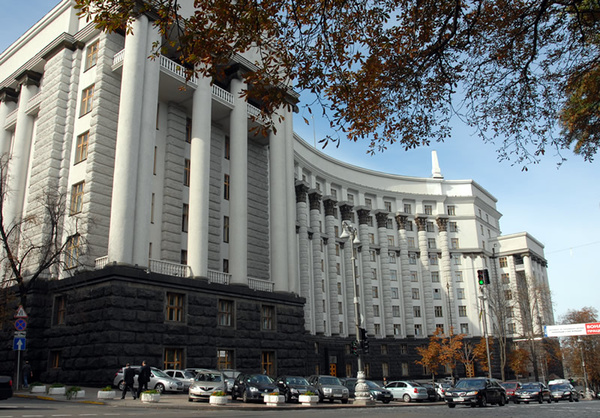Kyiv, April 25, 2014. The signing of Ukraine-EU Association Agreement, removal of EU tariffs on imports of Ukrainian goods, streamlining of the licensing process in the agricultural sector – these were just some notable accomplishments of Ukraine’s interim government in the past 60 days. Other achievements included the reduction of taxes on medicine, the establishment of the National Guard, reform of the judicial sector, strengthening of anti-corruption policy, introduction of new decentralization policy, and negotiation of energy reform.
Remarkably, on March 21, 2014 Ukraine and the European Union signed an Association Agreement which had been in the works for the past three years but had not been finalized by the Yanukovych administration. In addition, Ukraine and the European Union have agreed to remove all tariffs applied on Ukrainian goods which are exported to Europe. This measure creates a better environment for the turnaround of goods and is expected to result in an extra economic benefit of about EUR 500 million, as reported Ukraine’s interim Prime Minister Arseniy Yatsenyuk.
Ukraine’s interim government has conducted financial aid negotiations with the US, Japan, the European Union, the International Monetary Fund and the World Bank. The total amount of the loan from helping states is estimated to reach USD 20 billion. The IMF is still in the process of deciding upon the loan amount. The new economic policy of the interim Ukrainian government has been focused on reducing government spending, lowering the number of public servants, shrinking the size of the state carport and lowering additional payments to governmental officials. Within the past 60 days the state budget has received more than UAH 16 billion in taxes, which is UAH 203.4 million more than during the same period last year.
To address the business and agricultural sectors Ukraine’s Parliament adopted the law “On amendments to several legislative acts of Ukraine to reduce the number of permit documents”. This policy aims to simplify the licensing process and establishes transparent and fair rules for business operations, and aims to improve the investment climate in agricultural sector.
Reforms in human rights protection and the judicial sector are emphasized in the new law “On restoring trust in the court system of Ukraine”. This law introduces the means and mechanisms for enabling lustration of judges in Ukraine. The government of Ukraine has unanimously voted in favor of establishing of a Special Commission within the Ministry of Justice of Ukraine which would conduct monitoring missions to ensure that human rights of all prisoners and detained persons are ensured in all respective institutions.
The Ukrainian Parliament has also adopted laws for starting the process of eliminating the need to receive EU visas for Ukrainian citizens. Those include laws on “Anti corruption policy strengthening”, “Public procurement”, amendments to the Customs and Tax Codes on tax reduction for medicine (from 20 percent to 7 percent), as well as laws on the EU visa liberalization system.
The social security and education systems have been upgraded with a new social protection program for refugees and a new law on “Higher Education”. The new law provides universities with more autonomy and more advanced mechanisms for preventing corruption.
A gradual cancellation of subsidies, which has a great impact on Ukrainian budget, has been one of the IMF’s conditions for providing the next tranche of loans and for improving the gas market sector. Therefore Ukraine’s newly-introduced energy reform is designed to gradually increase gas tariffs for the households. Additionally, Ukraine and Poland have agreed on simplifying the reverse supply of natural gas. Ukraine is also involved in ongoing negotiations with the U.S., the EU and other countries on how to improve its energy efficiency.
The government presented a new concept of decentralization of the regions and local authorities in the bill “On the cooperation of local communities” and agreed with the EU about cooperation at all stages of local government reform and the introduction of the effective regional policy.
The situation in Crimea and Eastern Ukraine forced the Ukrainian government to start reforming the military sector. In light of the military threat initiated by the Russian Federation at Ukraine’s eastern border, Ukraine’s government has decided to reform its military sector, increase its budget, open donation accounts and establish a National Guard.
The current government, led by the interim Prime Minister Arseniy Yatsenyuk was appointed by the Ukrainian Parliament on February 27, 2014, after the dramatic Euromaidan events that drove ex-President Viktor Yanukovych from office. Since then, Ukraine’s interim government has been working intently to adopt new political and economic reforms aimed at European integration.




